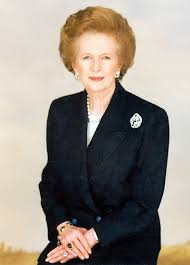The Enduring Legacy of Margaret Thatcher

Introduction
Margaret Thatcher, known as the Iron Lady, served as the Prime Minister of the United Kingdom from 1979 to 1990. Her leadership marked a significant turning point in British politics, establishing her as a pivotal figure in the history of the nation. Thatcher’s policies have sparked passionate debate, continuing to influence political discourse today.
Thatcher’s Political Rise
Born on October 13, 1925, in Grantham, Lincolnshire, Margaret Thatcher studied chemistry at the University of Oxford before entering politics. A member of the Conservative Party, she was first elected as Member of Parliament (MP) for Finchley in 1959. After a lengthy rise through party ranks, she became the leader of the Conservative Party in 1975. Her rise to the Prime Ministership in 1979 came during a time of economic turmoil and social unrest, which she tackled with a strong resolve.
Key Policies and Their Effects
Thatcher’s government is best known for its free-market policies, which included privatisation of state-owned companies, reducing the power of trade unions, and encouraging entrepreneurship. Her response to the economic crises of the late 1970s included strict monetary policies aimed at reducing inflation, which led to high unemployment rates in the early years of her premiership. Critics argue that her policies exacerbated social divisions, particularly in Northern England, while her supporters claim that she revitalised the British economy.
The Falklands War and International Relations
One of the significant events during her tenure was the Falklands War in 1982, a conflict with Argentina over the disputed Falkland Islands. The successful outcome boosted her popularity and solidified her position as a decisive leader. Thatcher’s foreign policy, characterised by a close relationship with the United States under President Ronald Reagan, also played a crucial role in shaping global geopolitics, particularly during the Cold War.
Legacy and Significance
Margaret Thatcher’s influence extends beyond her time in office; she remains a contentious figure. Supporters laud her for modernising the British economy and establishing a stronger role for women in leadership, while detractors highlight the adverse social impacts of her policies. As the first woman to serve as Prime Minister, her legacy has opened doors for female politicians and has sparked ongoing discussions about leadership and gender in politics.
Conclusion
Margaret Thatcher passed away on April 8, 2013, but her legacy continues to resonate in the UK and around the world. As political debates evolve, the impact of her policies remains a vital part of understanding contemporary British politics. Future leaders can draw lessons from her tenure, illustrating the importance of leadership decisions in shaping a nation’s trajectory.








